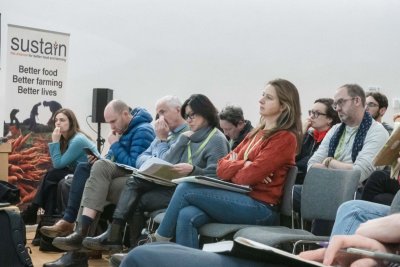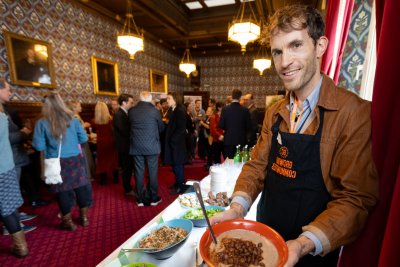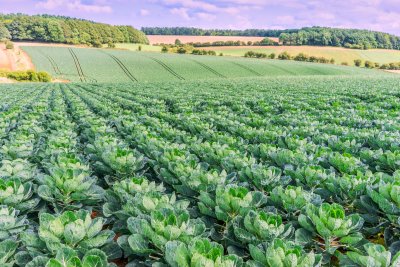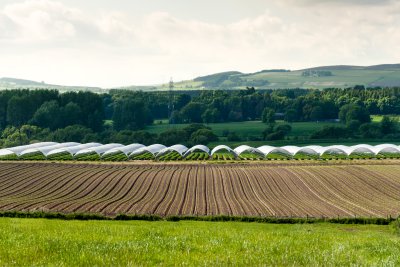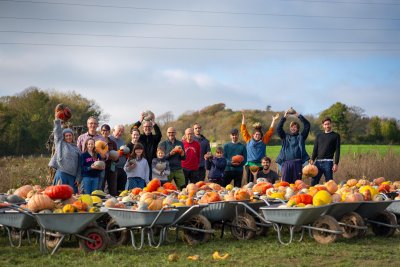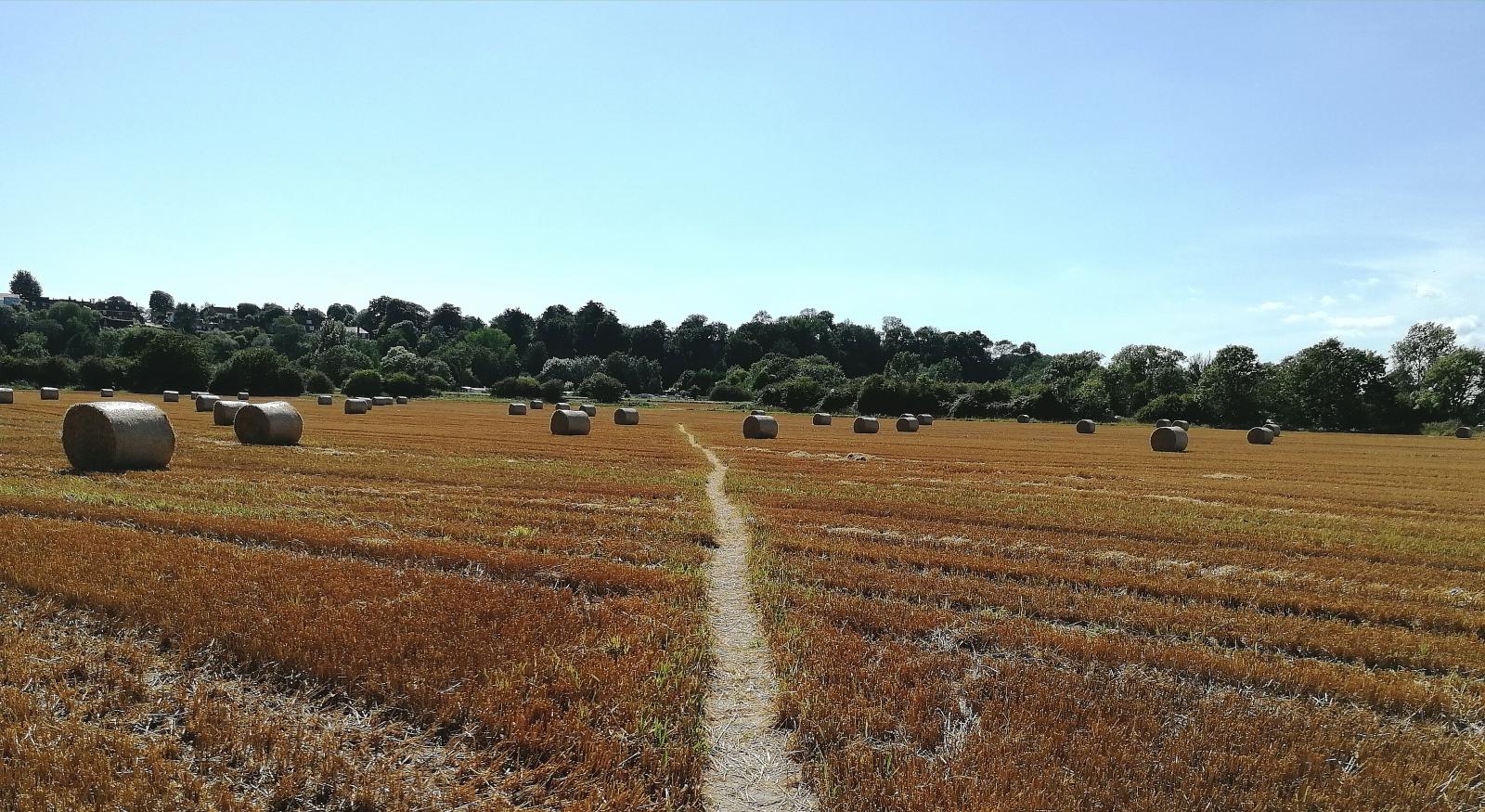 Credit: Vicki Hird
Credit: Vicki Hird

MPs critique new English farm environment scheme progress
In their new report out today, MPs from the Environment, Food and Rural Affairs (EFRA) Committee have urged the Government to assess the risks of phasing out England direct farm payments, and seek clarity on how it will support farmers through the transition to deliver environmental public goods.
In the report Environmental Land Management and the agricultural transition, EFRA Committe MPs have given a strong set of recommendations to deal with the issues that their inquiry found. The lack of clear ambition, impact assessments and targets were strong concerns.
We were pleased to see the report recommend that Defra includes a more ambitious whole-farm approach to delivering public goods in the Sustainable Farming Incentive (SFI), alongside the parcel-based approach. Vicki Hird, Head of Farming at Sustain gave both oral and written evidence and is quoted in their report.
"We need an integrated farm scheme that looks at the farm as a whole, using the whole farm system to deliver outcomes, which are public good outcomes as well as business outcomes. That feels untouched by SFI, because it is so parcelled out into different specific standards… “
“diversity and more mixed farming systems that mix arable and livestock are surely the way forward to create systems that have fewer costs, with livestock playing a role in nutrient building and potentially weed management.”
Additional comments and recommendations in the report included:
- 'Defra should publish an impact assessment detailing how the transition from direct payments to ELM will impact the viability of farm businesses, broken down by sector and by region.'
- 'Defra is already in the process of delivering its multi-billion pound ELM programme without having published any measurable objectives. We understand that the process of developing objectives is underway, but we are already nearly a year into the agricultural transition and Defra has not explained in detail how it will show that the money being taken away from farm payments is being spent effectively. This should happen as soon as possible, and definitely before the Sustainable Farming Incentive opens for applications in 2022.'
- 'Those farming the uplands, and tenanted and common land, will face particular challenges during the agricultural transition, and Defra must not squander the considerable potential of this land to deliver public goods.'
- 'Defra should not miss opportunities to also support a more ambitious whole-farm approach to delivering public goods. Alongside the parcel-based actions within the SFI, Defra should set out a plan to support public goods delivery at the whole-farm level.'
- 'We share the concerns of many that the existing approach to calculating payments based on “income foregone” will be unattractive to farmers and ineffective for the environment. Payments for environmental actions need to fairly and fully represent the management costs associated with delivering them. Defra should explain how it will set payment rates for ELM to ensure that participating in these schemes is an attractive option for farmers as BPS is withdrawn.'
- 'Peer-to-peer learning should form an important element of the agricultural transition.'
Neil Parish MP, Chair of the EFRA Select Committee, said:
"This is the most fundamental change to agricultural funding in a generation, and the impact of this huge change on farmers' incomes and entire ways of life cannot be underestimated. The plan to support farmers through this transition must be robust, and it must be able to adapt to unforeseen circumstances. The Government appears to be determined to plough ahead with phasing out direct payments without considering how this will impact on farmers’ livelihoods and on the environment. It is essential that the Government undertake the necessary work to understand exactly what the consequences of this transition will be.
"It is concerning that the rollout is already underway without indications of how the scheme's success will be measured. I urge Defra to publish precise and measurable objectives for ELM as soon as possible to account for how transition away from CAP will support the Government’s environmental aims.
"These schemes will only be successful if uptake is high- and this can only happen if land managers are clear on how ELM will work for them. It is essential that Defra engage effectively with the full range of land managers and farmers to communicate its plans, and that it funds peer-to-peer learning, which will build the confidence needed for the English farming sector to fully embrace the change."
You can read the full report here. It is the second one the EFRA Committee have published on ELMS.
You can read Sustain's briefing on how ELM can help deliver an agroecological transition in the UK here.
Sustainable Farming Campaign: Pushing for the integration of sustainable farming into local, regional and national government policies.
Sustain
The Green House
244-254 Cambridge Heath Road
London E2 9DA
020 3559 6777
sustain@sustainweb.org
Sustain advocates food and agriculture policies and practices that enhance the health and welfare of people and animals, improve the working and living environment, promote equity and enrich society and culture.
© Sustain 2026
Registered charity (no. 1018643)
Data privacy & cookies
Icons by Icons8
